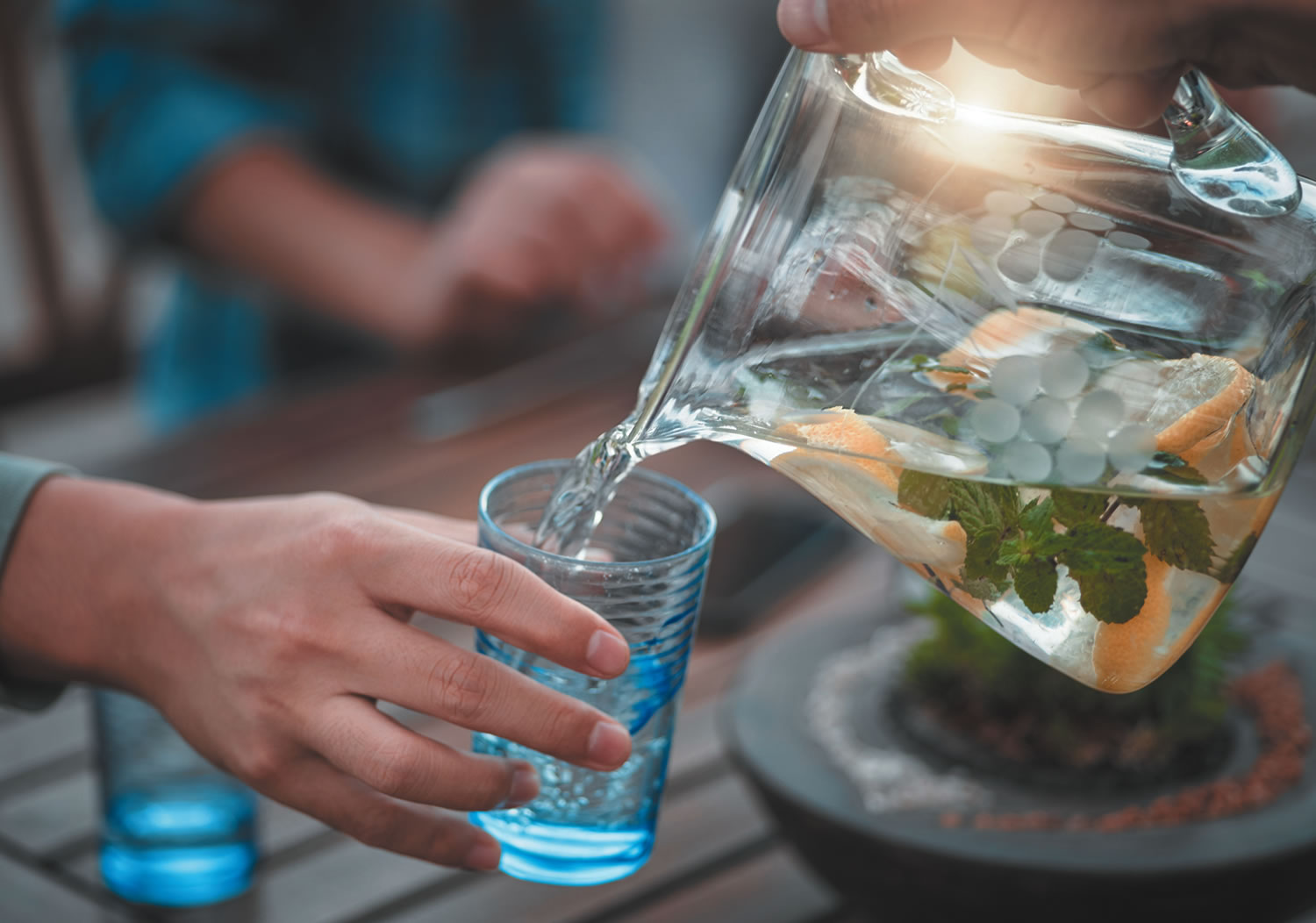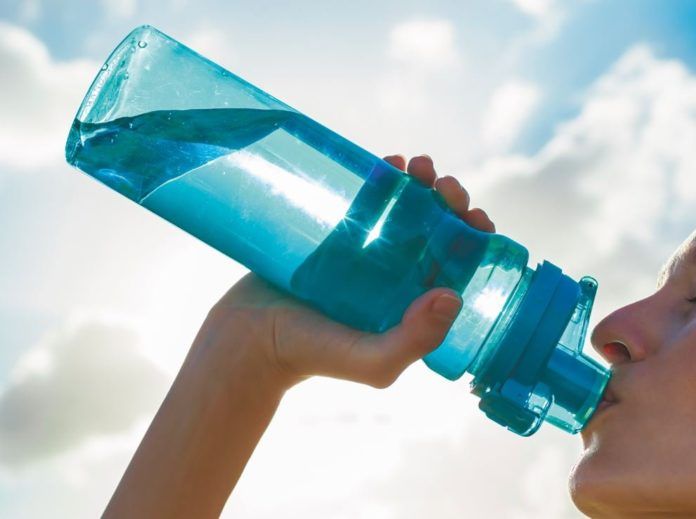The hot summer months are upon us, but sweating in the sun is not the only factor that raises risk for dehydration. This potentially dangerous drop in body fluid affects everything from blood pressure to the brain, so knowing the causes, signs, and symptoms of dehydration—as well as how to avoid it—is critical.
Dehydration Basics: Any situation that involves either not taking in enough fluid or losing too much fluid can cause dehydration. “We don’t drink enough if fluids are unavailable, or if we lack an adequate thirst response,” says Roger Fielding, PhD, director and senior scientist at the Nutrition, Exercise Physiology, and Sarcopenia Laboratory at Tufts’ Human Nutrition Research Center on Aging. “We lose fluid through sweat, diarrhea, vomiting, or blood loss. Medications like diuretics (water pills), or medical conditions like uncontrolled diabetes, can also cause too much water to leave the body. These factors, alone or in combination, can lead todehydration.”
Our bodies are up to 60 percent water, and a drop in normal levels affects all body systems. “One of the biggest water-containing spaces in the body is your blood volume,” says Fielding. “As you become dehydrated, blood volume drops, and your heart has to work harder to deliver enough blood to your tissues.” Dehydration can cause dizziness, lightheadedness, fatigue, dry mouth, headache, and an unusually rapid heartbeat. It can contribute to constipation, urinary tract infections, kidney stones, and impaired mental ability. Extreme dehydration is dangerous, because it can make it difficult for the body to maintain adequate blood pressure.
The body’s response to low fluid levels is thirst, but that fail-safe doesn’t work all the time. “Sometimes people don’t sense thirst until they’re already dehydrated,” says Fielding. Looking at the color of urine can help gauge level of hydration: Urine should be light. Very dark urine indicates dehydration. If you exercise (and sweat) vigorously, stepping on a scale before and after exercise is another way to gauge fluid loss. Any weight lost right away from exercise is water loss.
Risk Factors: High temperatures, intense activity, and advancing age all increase dehydration risk.
“One of most common causes of dehydration is being exposed to high temperatures,” says Fielding. “Humans dissipate heat by producing sweat. That sweat evaporating from the surface of the skin into the air causes cooling.” Being active in high temperatures raises risk even more. “Hot humid days are the most dangerous,” Fielding says, “because we sweat more, but it doesn’t evaporate efficiently, so it doesn’t cool us down.”
The amount of water in the body decreases by 15 percent between the ages of 20 and 80, so older adults are at greater risk of becoming dehydrated from small water losses. Additionally, the thirst response diminishes as people age. “The thirst mechanism is reduced in older adults, so older adults may not sense they’re becoming dehydrated,” says Fielding. “They also tend to drink less volume when they do drink, so they may not rehydrate well.”
Staying Hydrated: There is no official recommendation for fluid intake. “Your fluid needs depend on many factors,” says Fielding, “including your body size, the foods you eat, the environment (temperature and humidity), and how active you are in that environment.”
Water is almost always the best choice for staying hydrated. “Water is readily absorbed and will replete fluid loss,” says Fielding. “With very high intensity exercise or high levels of extreme activity, sports drinks may be a little better than water, but they are not generally necessary. Studies show that electrolyte loss in exercise is actually very small, and can be replaced through normal dietary intake. The electrolytes in sports drinks aren’t actually there to replace lost electrolytes, they just help the water be absorbed slightly faster.”
It’s hard to overdo it. “There have been reports of people drinking too much water, causing a dangerous drop in their serum sodium, but this is very rare and is only seen with very extreme water intake,” says Fielding. So get out and enjoy the sunshine, but be sure to drink up!

Try these tips for staying hydrated:
-Choose water (avoid sugar-sweetened beverages and fruit juices)
-Don’t wait until you’re thirsty to drink, particularly in overheated rooms or hot weather
-Put sliced fruits, veggies, or herbs in water overnight to add flavor (try cucumber-mint)
-Carry a refillable water bottle
-Use sports drinks only for long and/or intense exercise in hot weather
-Drink a glass of water at every meal
-Sip unsweetened hot or iced tea or coffee
-Enjoy water-dense fruits and vegetables, like watermelon and cucumbers






















Helpful and personally relavent
why not remind your readers about the dangers of consuming beer as remedy for thirst
That’s Great good 2 Know! Thanks